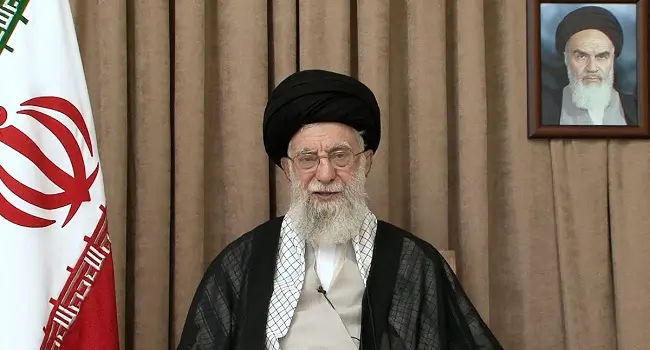Iran’s Supreme Leader, Ayatollah Ali Khamenei, has issued a stark warning to the United States, threatening further attacks on American military bases in the region if the country is targeted again.
In a televised address aired on state media Thursday, Khamenei claimed the West Asian country had emerged victorious from its recent 12-day conflict with Israel, the deadliest between the two nations to date. He also accused Washington of inflating the impact of its strikes on Iranian nuclear facilities, calling it a “slap” that had little effect.
“The American president exaggerated events in unusual ways, and it turned out that he needed this exaggeration,” Khamenei said, adding that the U.S. had “gained nothing from this war” and that its strikes “did nothing significant” to halt the Asian country’s nuclear program.
“The Islamic Republic won, and in retaliation dealt a severe slap to the face of America,” he declared, referencing Iran’s missile strike on the largest U.S. military base in the Middle East.
Khamenei also aimed at Israel, claiming the country was brought to the brink by the Asain country’s military response. “I want to congratulate the great Iranian nation… for its victory over the fallacious Zionist regime,” he said. “Israel has almost collapsed.”
His comments come just days after a ceasefire brought an end to the intense Iran-Israel conflict, during which both sides claimed victory. Israeli Prime Minister Benjamin Netanyahu earlier described the outcome as a “historic victory” for Israel and warned that any attempt by Iran to revive its nuclear project would be met with equal force.
The fallout of the U.S. role in the conflict has sparked political tension in Washington, with intelligence leaks casting doubt on the effectiveness of U.S. airstrikes on Iran’s nuclear infrastructure. An early classified assessment, reported by CNN, indicated that the strikes caused only limited disruption and may have delayed Iran’s nuclear program by a few months at most.
However, President Donald Trump maintained that the attacks “obliterated” Iran’s nuclear capabilities, specifically pointing to the Fordo site, buried deep within a mountain, as a key target.
CIA Director John Ratcliffe backed Trump’s position, stating that several critical nuclear facilities were destroyed and would require years to rebuild.
Amid the uncertainty, experts have raised questions over whether Iran had preemptively relocated hundreds of kilograms of enriched uranium before the attacks, possibly concealing it elsewhere in the country.
The Israeli military has said that while its strikes inflicted substantial damage, it was still too early to assess the full extent.
Meanwhile, Iranian foreign ministry spokesman Esmaeil Baqaei told Al Jazeera that “nuclear installations have been badly damaged, that’s for sure.”
Despite the destruction, both sides appear open to renewed diplomacy. Trump said nuclear talks with the former Persia could resume next week and suggested that a peace agreement might be within reach.
“We may sign an agreement. I don’t know,” he told reporters, adding that “Israel and Iran are both tired, exhausted.”
Iran restates right to peaceful nuclear energy
The country continues to assert its right to peaceful nuclear energy while denying any intent to develop nuclear weapons. Tehran has also expressed a willingness to return to negotiations.
The war, which ended in a fragile truce, left a devastating toll. According to the Asian country’s health ministry, Israeli strikes killed at least 627 civilians. In contrast, Iran’s attacks on Israel resulted in 28 deaths.
A state funeral for top citizen commanders and nuclear scientists killed during the conflict is scheduled for Saturday in Tehran.



